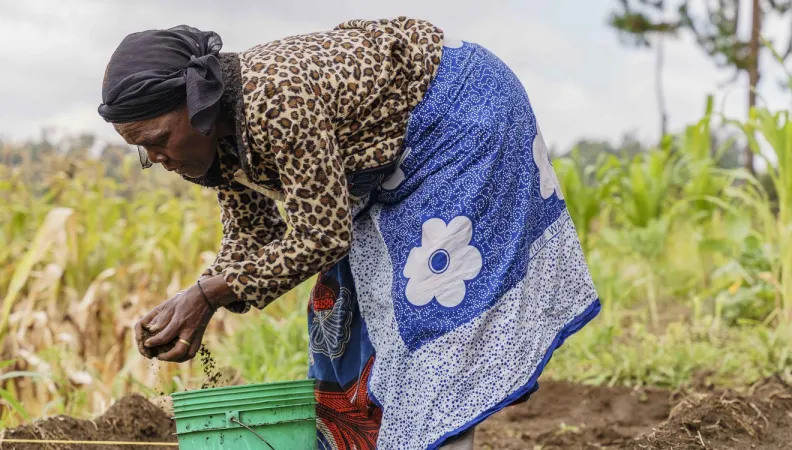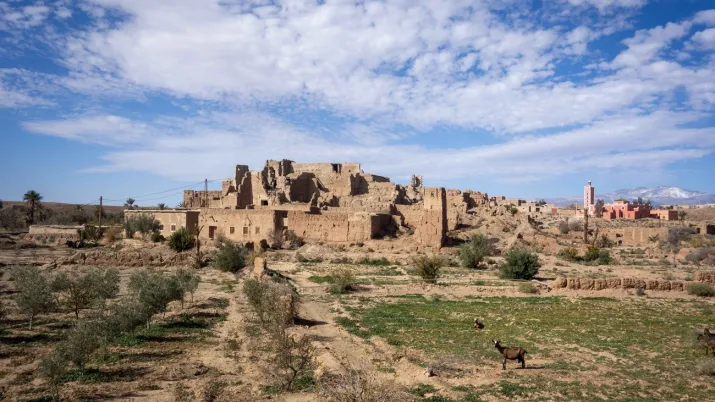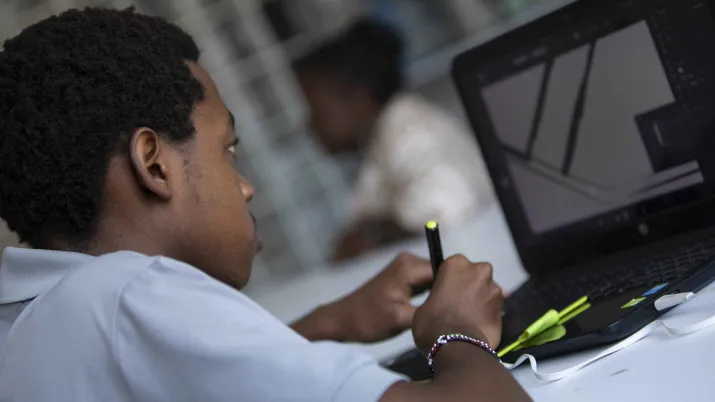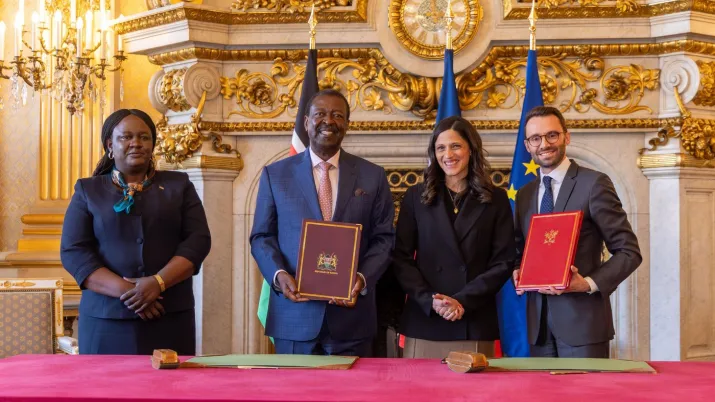Share the page
Reshaping European and African partnerships to advance the agroecological transition
Published on

As part of the 2025 Paris International Agricultural Show, and a month prior to the Nutrition for Growth summit, AFD and the Académie d'agriculture de France organized a roundtable and strategic brainstorming session on transforming African and European food systems, and redefining current partnerships. Given that current production and consumption models can no longer feed populations without harming the planet, a shift toward more sustainable food systems is imperative.
“The Earth can no longer feed us properly,” stated former Minister of Agriculture and Senegalese ambassador, Papa Abdoulaye Seck, on Thursday, February 13, at AFD's headquarters, arguing that the conventional agricultural model has shown its limits, and highlighting the challenges that result from the interdependence of African and European food systems.
Failing food systems
According to Christophe Chauveau, Managing Director of Agronomists and Veterinarians without Borders (AVSF), the term 'food system' refers to “agricultural systems including different modes of production, distribution and consumption.” He believes that there must be an overhaul of the current systems through which food is produced and processed because “conventional systems are producing too much food, of poor nutritional quality, and are destroying the environment.”
Christophe spoke about the necessary shift away from production-driven models—heavily reliant on synthetic fertilizers and chemicals—to more sustainable food systems that generate less chemical pollution. Other stakeholders in the agroecological transition also advocate this approach, such as Patrick Caron, a researcher at CIRAD (France’s agricultural research agency for sustainable development), explaining that “Agroecology represents a paradigm shift in how we produce and consume food, while taking into account a host of other issues, like the environment, climate change, public health, social justice, and so on.”
The food industry also has a major impact on soil degradation and loss of biodiversity. According to IPCC reports, the Agriculture, Forestry, and Other Land Use (AFOLU) sector is responsible for about 23% of global anthropogenic GHG emissions in CO2-equivalent terms. Paradoxically, agriculture is also one of the sectors most directly affected by climate change, though it has strong potential for mitigation and adaptation.
See also: AFD Group and nutrition
Interdependent food systems
For Christophe Chaveau, “We need to develop a fairer model of global trade.” Not only is malnutrition in Africa currently exacerbated by European food systems that export food products with little nutritional value, but, in the opposite direction, Europe’s overly strict environmental standards penalize market access for agricultural products from African family farms. “These standards have resulted in a complex and expensive traceability system, for which European consumers are not willing to foot the bill. As a result, small farming cooperatives in Africa are having to absorb these costs,” Patrick Caron explains.
Recommendations are being put forward to reshape partnerships between African and European food systems, such as involving consumers in debates, investing in value chains, supporting regional initiatives and building stronger partnerships between African and European civil society organizations.
Supporting the transformation of food systems
AVSF advises local NGOs on lobbying for public policies that support these efforts and recognize farmers’ key role in the supply chain. As Patrick says, “transforming food systems requires both technical and institutional reform. We need a system in place, both nationally and internationally, that offers incentives for adopting healthy, sustainable food systems and penalizes those that are not.”
See also: Enriching soil fertility worldwide for food security
AFD Group is also supporting various initiatives that are driving the shift to more sustainable food models. Among these is the Milk Offensive Support Project in West Africa (PAOLAO), which is helping to implement the Economic Community of West African States' (ECOWAS) regional agricultural strategy. It aims to develop local milk value chains in a sector that is struggling to compete with European milk powder imports. “The challenge is not only to promote short supply chains and stop imports of a powder that is not even classified as milk by European regulatory bodies, but also to increase milk production and collection, sales of livestock feed and product development,” says Jean-René Cuzon, Project Team Leader for AFD’s Agriculture, Rural Development and Biodiversity Division.
Training is also fundamental in the transition to agroecological food systems. Since 2008, AFD Group has been helping Cameroonian authorities to advise farmers, via the AFOP program (a support program for the renewal and development of vocational training in the agriculture, livestock and fisheries sectors) and ACEFA (a program to support family agro-pastoral farms). “The aim is to adapt these advisory schemes, which have previously focused on traditional practices and agricultural inputs, to incorporate agroecological systems,” Jean-René Cuzon explains. Through these two projects, unique to the region, almost 22,000 young people have received training, 40% of whom are women. 5,000 of these young trainees have now become farmers.
See also: Women are the backbone of agriculture in Haiti
AFD Group also supports private-sector investment in agro-ecology as another potential solution. For example, Proparco is providing the Ivorian agri-business group SIFCA with technical support and financing to develop a sustainable development strategy that complies with environmental and social standards. Among other initiatives, SIFCA implements projects to safeguard food sovereignty for the small-scale producers with whom it works. These projects include providing access to drinking water and electricity, and ensuring their children can attend school.
Partnerships between Africa and Europe must continue to evolve, according to Bertrand Walckenaer, AFD’s Deputy Chief Executive Officer: “We need to review our current position. Should we be projecting France’s views on these development projects? Or should we trust our partners and accept that our ideas may not always be the most effective, because we don’t know as much as they do about the climate, local organizations and their history?”



